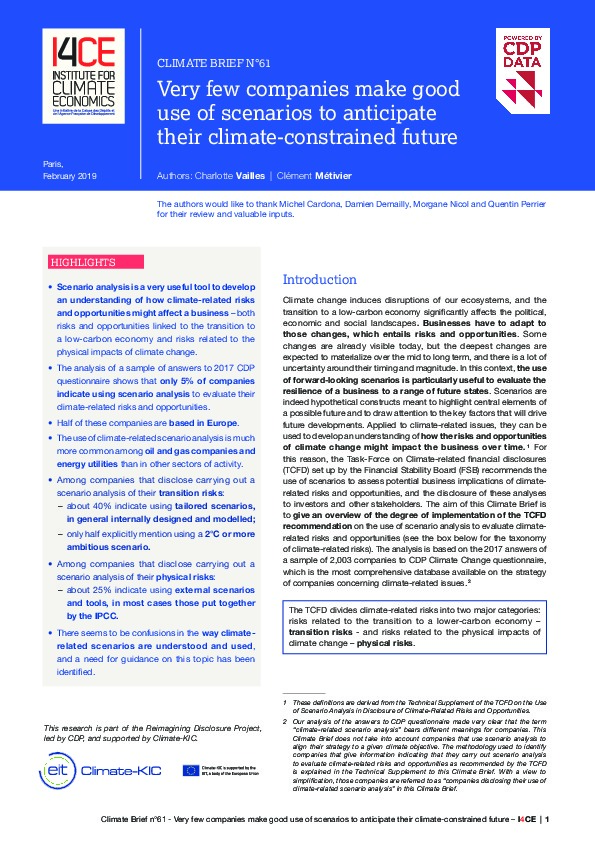Very few companies make good use of scenarios to anticipate their climate-constrained future
Climate change induces disruptions of our ecosystems, and the transition to a low-carbon economy significantly affects the political, economic and social landscapes. Businesses have to adapt to those changes, which entails risks and opportunities. Some changes are already visible today, but the deepest changes are expected to materialize over the mid to long term, and there is a lot of uncertainty around their timing and magnitude. In this context, the use of forward-looking scenarios is particularly useful to evaluate the resilience of a business to climate-related risks, and it is recommended by the Task-Force on Climate-related financial disclosures (TCFD) set up by the Financial Stability Board (FSB).
This Climate Brief gives an overview of the degree of implementation of climate-related scenario analysis to evaluate risks and opportunities, based on the answers of a sample of 2,003 companies to CDP 2017 Climate Change questionnaire. The analysis shows that:
- Only 5% of companies indicate using scenario analysis to evaluate their climate-related risks and opportunities;
- Half of these companies are based in Europe;
- The use of climate-related scenario analysis is much more common among oil and gas companies and energy utilities than in other sectors of activity;
- Among companies that disclose carrying out a scenario analysis of their transition risks : about 40% indicate using tailored scenarios, in general internally designed and modelled, and only half explicitly mention using a 2°C or more ambitious scenario;
- Among companies that disclose carrying out a scenario analysis of their physical risks : about 25% indicate using external scenarios and tools, in most cases those put together by the IPCC;
- Overall, there seems to be confusions in the way climate-related scenarios are understood and used, and a need for guidance on this topic has been identified.
This publication will be followed by additional work on climate-related scenario analysis over the course of 2019, which will be publicly available.
This research is part of the Reimagining Disclosure Project, led by CDP, and supported by Climate-KIC.


